Description
Stella Artois Beer – A Premium Belgian Lager with Worldwide Appeal
Introduction
Stella Artois beer stands out as one of the world’s most recognised beer brands. With roots tracing back to the city of Leuven in Belgium, the brand carries a rich heritage, premium positioning and global footprint. In this article we’ll explore Stella Artois’s history, its product specifications, the production process, global distribution, the benefits and appeal of the beer, and some of the challenges and considerations that come with its premium status.
1. A Brief History of Stella Artois Beer
The story of Stella Artois beer begins long before the brand name itself. The brewery at Leuven was originally known as Den Hoorn Brewery (“the Horn”) and is recorded in 1366, giving the brand an origin story of more than six centuries.
In 1708, a brewer named Sébastien Artois became head brewer at Den Hoorn and later purchased the brewery in 1717, renaming it Brouwerij Artois.
Fast-forward to 1926: the first “Stella Artois” beer was brewed in Leuven, originally as a seasonal Christmas beer (the name “Stella” meaning star, referencing the Christmas star).
Over time the beer evolved into a year-round product and started being exported internationally. Today the brand is part of the global brewing conglomerate Anheuser‑Busch InBev (AB InBev) and marketed in many countries.
2. Product Specifications of Stella Artois Beer
2.1 Beer Style & Ingredients
Stella Artois beer is classified as a premium Belgian lager (pilsner style) — a bottom-fermented pale lager, characterised by clarity, moderate hop bitterness, and a crisp finish.
Key ingredients include:
-
Water
-
Malted barley (pils malt)
-
Noble hop varieties (notably Saaz hops)
-
Maize or corn adjunct in many markets (for consistency of body and flavour)
-
Yeast (lager strain)
2.2 Alcohol Content (ABV) & Variations
The standard alcohol by volume (ABV) for Stella Artois beer varies by market:
-
Original Belgian version: ~5.2% ABV.
-
In many export or local-market versions: ~5.0% ABV.
-
In some markets (UK, Canada, Australia) versions at ~4.8% or ~4.6% ABV.
2.3 Appearance & Tasting Notes
-
Colour: Pale golden, bright and clear.
-
Aroma: Subtle malt sweetness, light floral/hoppy notes (from Saaz hops) and some maize/corn adjunct profile.
-
Taste: Balanced malt body, moderate bitterness (the brand positions itself as crisp and refreshing rather than heavy or overly hopped).
-
Finish: Dry, clean finish typical of a premium lager – suitable for pairing with food.
2.4 Packaging & Serve
-
The brand emphasises its signature chalice glass: the “Stella Artois Chalice” is specifically designed for aroma and temperature. Standard bottle sizes: e.g., 330 ml non-returnable bottle in many markets.
-
Nutrition: For example, a 330 mL bottle may contain around 130 kcal, around 10.4 g carbohydrates (varies by market).
3. Global Distribution & Market Position of Stella Artois Beer
3.1 Geographic Reach
Stella Artois beer is distributed in over 90 or more countries globally. For example, AB InBev’s 2017 report indicated it as the #1 Belgian beer in the world, served in 90+ countries. Other sources say “available in more than 95 countries”.
3.2 Brand Positioning
The brand is positioned as a premium, heritage Belgian lager — emphasising tradition, craftsmanship, sophistication rather than just mass-market quantity. Sources describe it as one of AB InBev’s flagship global brands (alongside Budweiser and Beck’s).
3.3 Marketing & Heritage Appeal
Stella’s marketing draws heavily on its Belgian heritage, the history of Leuven, the “1366” date on its label (referring to the original Dä Hoorn brewery) and the carefully designed chalice.
3.4 Growth Indicators
In recent years, the brand has experienced strong growth: one article reports an 11.7% increase in global sales for Stella Artois according to AB InBev data
4. Benefits & Appeal Worldwide
4.1 Premium Brand Perception
Because of its heritage, quality ingredients, consistent flavour profile and premium packaging, Stella Artois appeals to consumers who are looking for a higher-end lager. This positioning allows it to command higher pricing in many markets.
4.2 Versatile Food Pairing
Given its balanced taste, crisp finish, and moderate bitterness, Stella Artois pairs well with a range of foods: from seafood and salads to roasted meats and hard cheeses. For example, one source suggests pairing with cured meats, hard cheeses and seafood.
This makes it a good fit for restaurants, bars and settings where food accompaniment is important — enhancing its appeal in global markets.
4.3 Global Recognition & Availability
With distribution in many countries and a strong global footprint, Stella provides consistent quality expectations for consumers — whether they are in Europe, Africa, the Americas or Asia. This global presence contributes to its appeal among travellers and globalised consumers.
4.4 Heritage & Storytelling
Consumers often value brands with story and authenticity. Stella’s narrative — rooted in Belgium’s brewing tradition, a brewery dating back to 1366, and the branding with the hunting horn and star — gives it an authenticity many brands lack.
4.5 Ritual & Serve Experience
The brand promotes a nine-step pouring ritual when serving on tap into the chalice glass (in some markets) that emphasises the premium experience. This kind of experiential marketing elevates the perception of the beer beyond just “a lager” to “an occasion”.
4.6 Social Responsibility & Brand Initiatives
Stella Artois has also undertaken initiatives tied to clean water access (since water is a key ingredient). For example, one report mentions that through its partnership with Water.org the brand has helped provide access to clean water for more than 1.7 million people.
This kind of positioning adds to brand goodwill globally, especially in emerging markets where consumers are more sensitised to sustainability and corporate responsibility.
5. Technical Brewing & Quality Control
The premium nature of Stella Artois is supported by rigorous brewing and quality control standards under the AB InBev group. Some key points:
-
The beer undergoes bottom-fermentation (lager yeast) and extended cold-conditioning/“lagering” to lend it that crisp finish.
-
The brand emphasises consistent flavour profile across markets, even if brewing may be licensed or localised. Some sources talk about quality control, sensory evaluation and consistency testing.
-
In packaging and serving, attention is given to the chalice glass design (to enhance aroma, maintain temperature) and correct serving protocols.
6. Worldwide Benefits & Market Relevance to Emerging Regions
For markets such as Africa (including your region of Cameroon), Asia, Latin America and beyond, Stella Artois offers several benefits:
-
Premium import status: In many emerging markets, imported beers or globally recognised brands carry prestige and are seen as aspirational.
-
Consistent quality: For consumers who may not trust local mass-market beers, a brand like Stella offers a guarantee of consistency and global backing.
-
Pairing with food & social occasions: As dining out and hospitality sectors grow in many emerging markets, a premium lager that pairs well with food and fits a “celebratory” or “occasion” mindset is increasingly relevant.
-
Marketing story: The heritage, premium packaging and global brand status can be compelling for consumers seeking “value for money” in terms of brand prestige and experience (not just price).
-
Global brand familiarity: For travellers, expatriates or globalised consumers, seeing a well-known brand like Stella fosters familiarity and trust when abroad or at home.
-
Brand investment in sustainability: The link to clean water projects and responsible drinking can appeal to socially conscious consumers, which is a growing segment in many markets.
7. Considerations & Potential Drawbacks
While Stella Artois offers many benefits, there are some considerations:
-
Price point: Being positioned as a premium lager, Stella typically costs more than local mass-market beers. In some markets, that may limit its everyday consumption appeal.
-
Alcohol content & perception: In the UK especially, Stella has had reputational issues — one article states its nickname “wife-beater” (with all the negative connotations) due to higher ABV and associated behaviour among certain drinkers.
-
Local adaptation: Though the brand strives for consistency, localisation (packaging, ABV, adjunct usage) may lead to slightly different experiences across markets — that may affect purist consumers.
-
Competition: The global premium lager space is crowded and consumer tastes are shifting (e.g., craft beers, low/zero-alcohol beers, local artisan labels). Brands like Stella must continue evolving to remain relevant.
-
Health & moderation: As with all alcoholic beverages, moderation is key. Premium brands do not exempt consumers from standard health, regulatory and responsible drinking concerns.
8. Why Stella Artois Matters for the Global Beer Market
Stella Artois is significant not just as a brand, but as a case-study in global beer branding, premium positioning, and the export of heritage-brands from Europe to the world. Some broader implications:
-
From local brewery to global brand: The transition of a brewery founded in 1366 to a beer marketed in 90+ countries shows how heritage can be leveraged globally.
-
Premiumisation trend: As emerging markets grow in income, consumers increasingly trade up for “better” beer experiences, not just “cheaper” beer — premium lagers like Stella fit that trend.
-
Brand consistency vs localisation: Stella faces the challenge of maintaining consistent taste/experience while also adapting to local regulatory, supply chain and consumer preference differences (e.g., ABV shifts, adjuncts, packaging).
-
Sustainability & corporate responsibility: With beer brands under scrutiny for environmental and social impacts (water usage, packaging waste, responsible drinking), Stella’s efforts in water access and branding that emphasises heritage and responsibility provide a model for others.
-
Experience & ritual: By emphasising the chalice glass, specific pouring rituals and food pairing, Stella elevates the beer experience beyond simply “drink” to “occasion”. This helps differentiate in a crowded market.
9. Practical Tips for Consumers & Hospitality
Here are some practical tips if you or hospitality businesses are considering Stella Artois beeer:
-
Serve in the right glass: If possible, use the branded chalice glass, cold-it and pour properly to enhance aroma and flavour.
-
Pair thoughtfully: Given its crisp finish and moderate bitterness, pair Stella with lighter fare: seafood, white meats, salads, hard cheeses. Also works with grilled meats.
-
Temperature & timing: Serve the lager cold (but not ice-cold) to preserve aroma and flavour. Ensure good condition of keg/lines if on draught.
-
Highlight the heritage: In menus or promotions, note the Belgian origin, 1366 heritage, premium positioning — this adds value for consumers.
-
Moderation matters: Even premium beers should be consumed responsibly — emphasise moderate consumption in marketing and service.
-
Consider local version: Note that ABV and sometimes adjuncts differ in local markets — check the label for your region (e.g., 4.8% vs 5.2%).
-
Pricing strategy: In hospitality settings, position Stella slightly above mainstream lagers but perhaps below ultra-premium artisan beers, to strike a balance of prestige and accessibility.
10. Future Outlook
Looking ahead, Stella Artois is well-positioned but will face several dynamics:
-
Expansion in emerging markets: As regions such as Africa, Asia and Latin America continue to grow in beer consumption, premium global brands have opportunity.
-
Adaptation to evolving tastes: With younger drinkers showing interest in craft beers, low/zero-alcohol options and more flavourful styles, Stella may need to broaden its range or innovate while protecting core identity.
-
Sustainability & social licence: Continuation of responsible-drinking campaigns, packaging innovation (lighter bottles/cans, recyclable materials) and water usage efficiency will be important for brand legitimacy.
-
Maintaining premium status: As global competition grows and local premium/regional craft beers proliferate, Stella must maintain its quality, heritage story and differentiate strongly to avoid being perceived as “just another lager”.
-
Localisation vs global integrity: Balancing local market adaptations (for cost, taste or regulation) with global flavour consistency remains a key challenge. Consumers may become more discerning about authenticity.
Conclusion
Stella Artois is more than just a lager — it’s a brand that encapsulates centuries of Belgian brewing heritage, a global premium positioning, consistent specifications and worldwide availability. For consumers, it offers a refined experience: a crisp pale golden lager brewed with quality ingredients, a distinctive chalice serve, and a strong story behind it. For markets and hospitality, it offers a premium product that can elevate occasions, pair well with food and carry an international reputation.
However, like all brands, Stella must continue to innovate, ensure quality, respect local market realities and stay aligned with evolving consumer tastes and social expectations. In a world where beer drinkers increasingly value authenticity, sustainability and experience, Stella Artois has many of the right elements.
Whether you are a consumer looking for a sophisticated lager or a business considering which premium brands to stock and promote, Stella Artois stands out as a globally trusted choice rooted in heritage — one that delivers both specification and story.

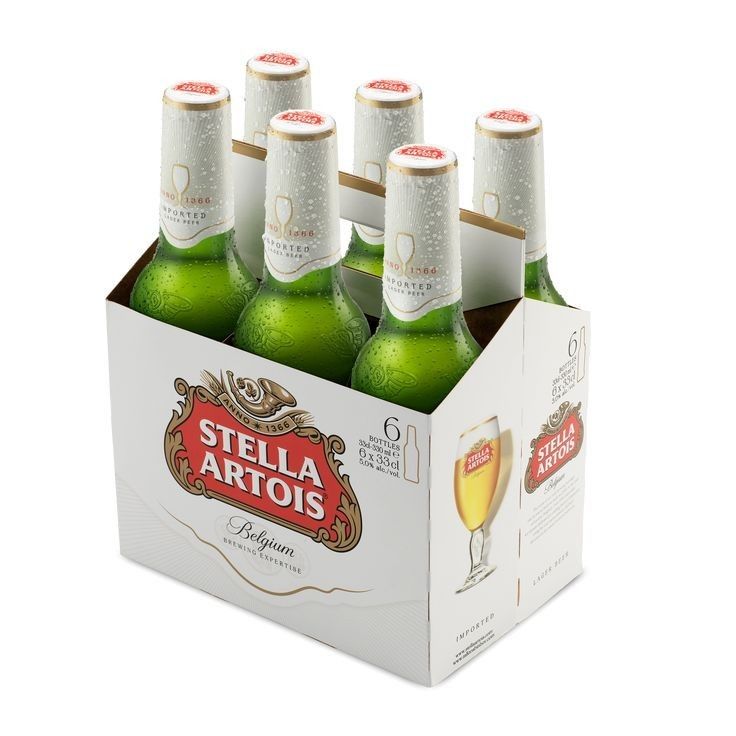
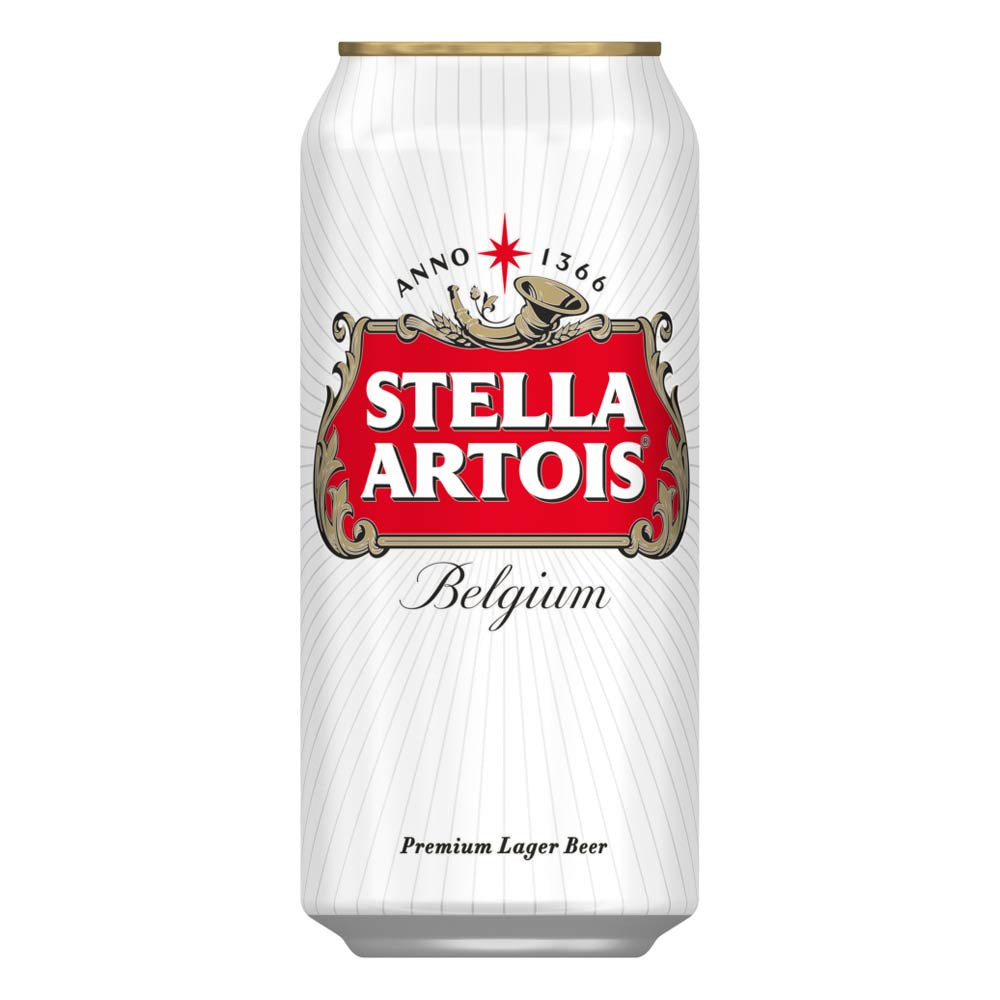

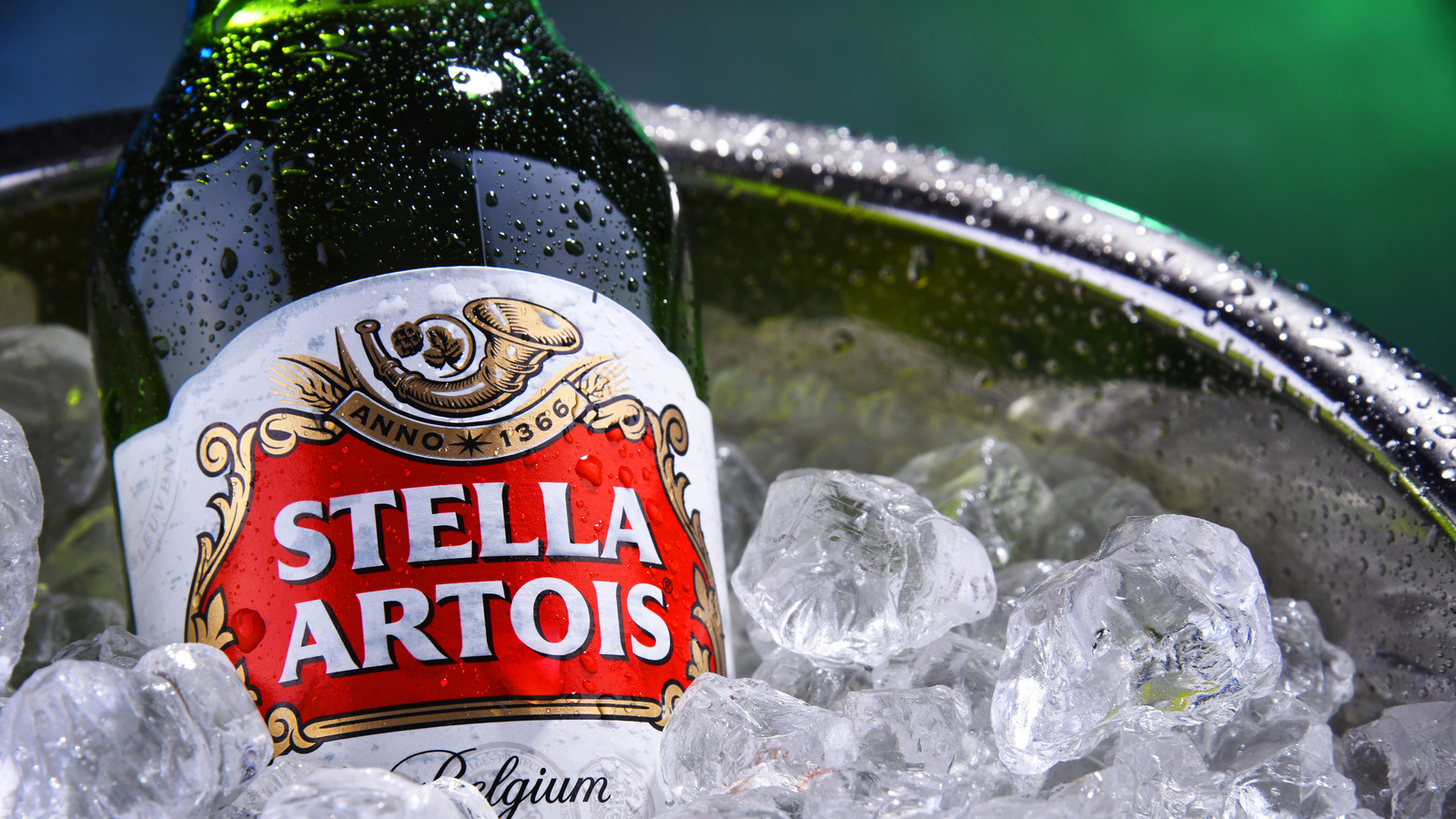
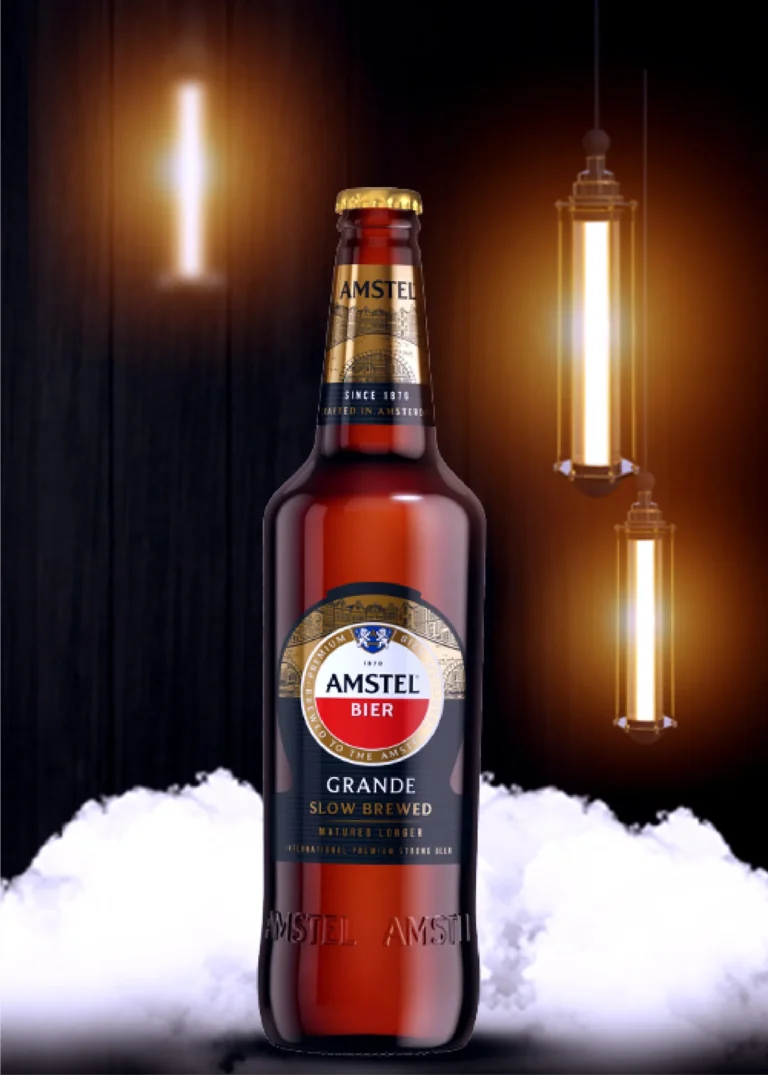

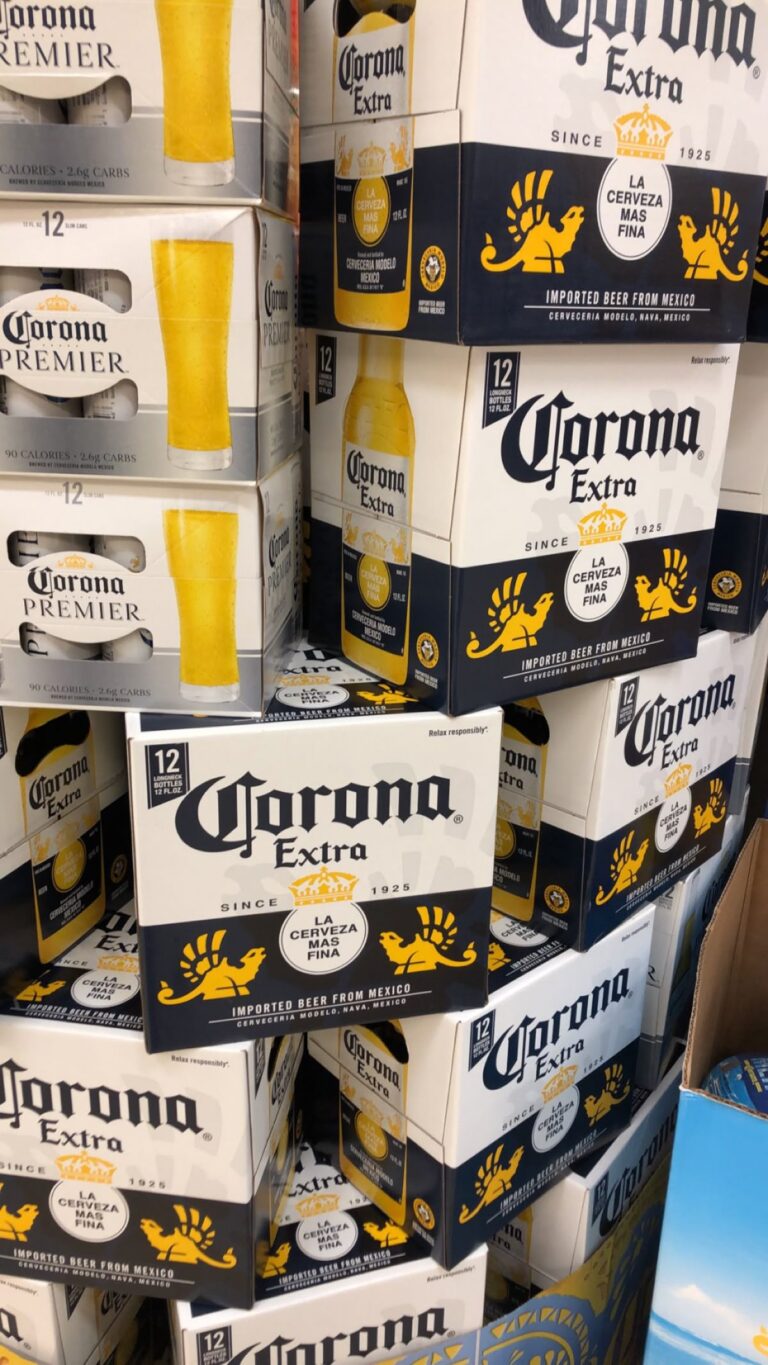

Reviews
There are no reviews yet.